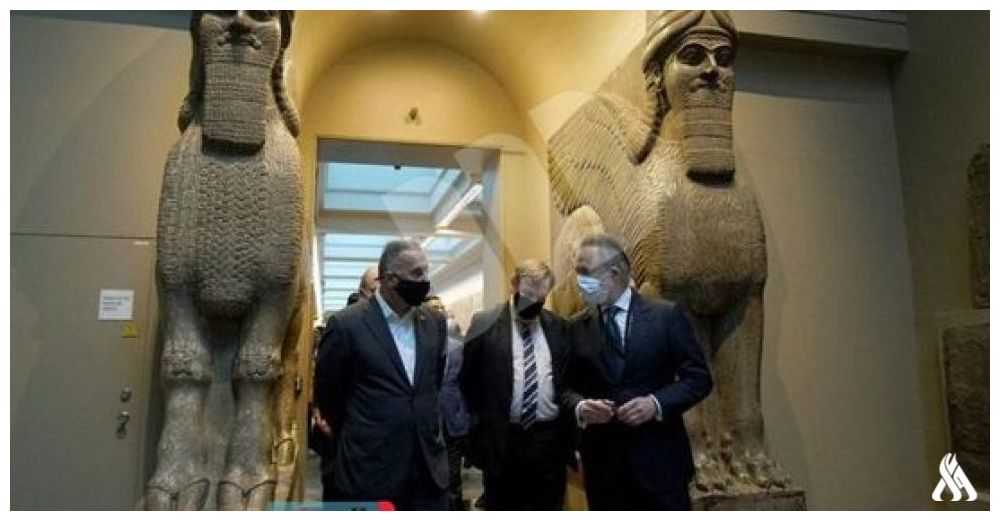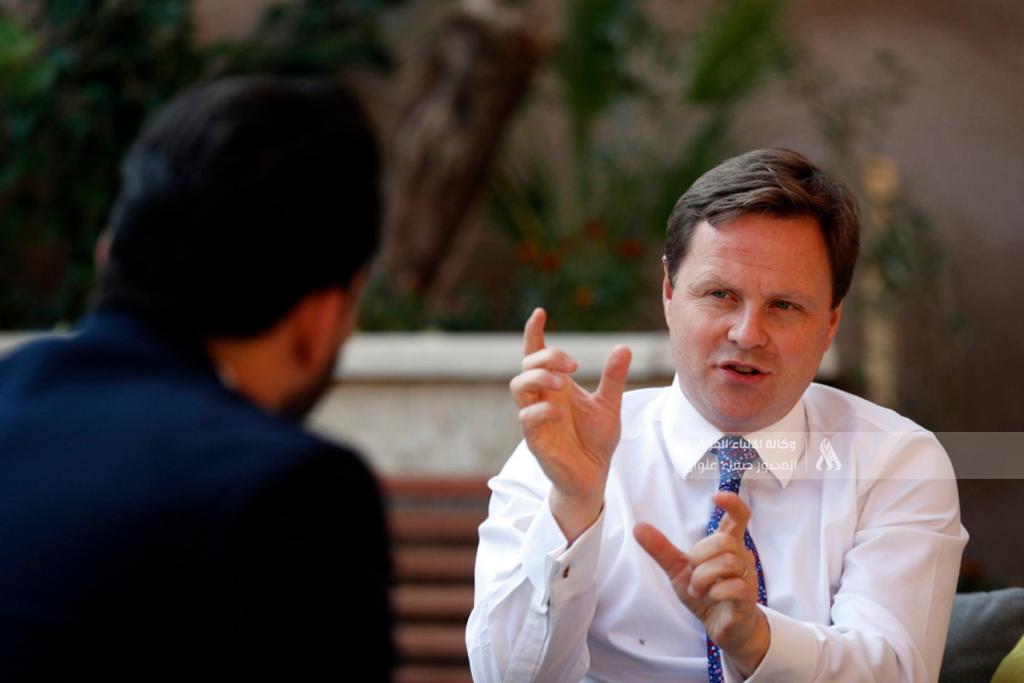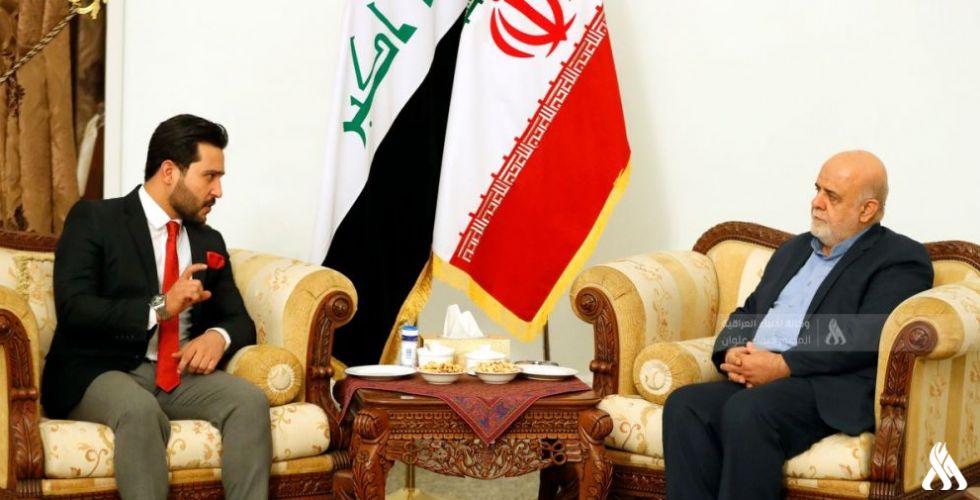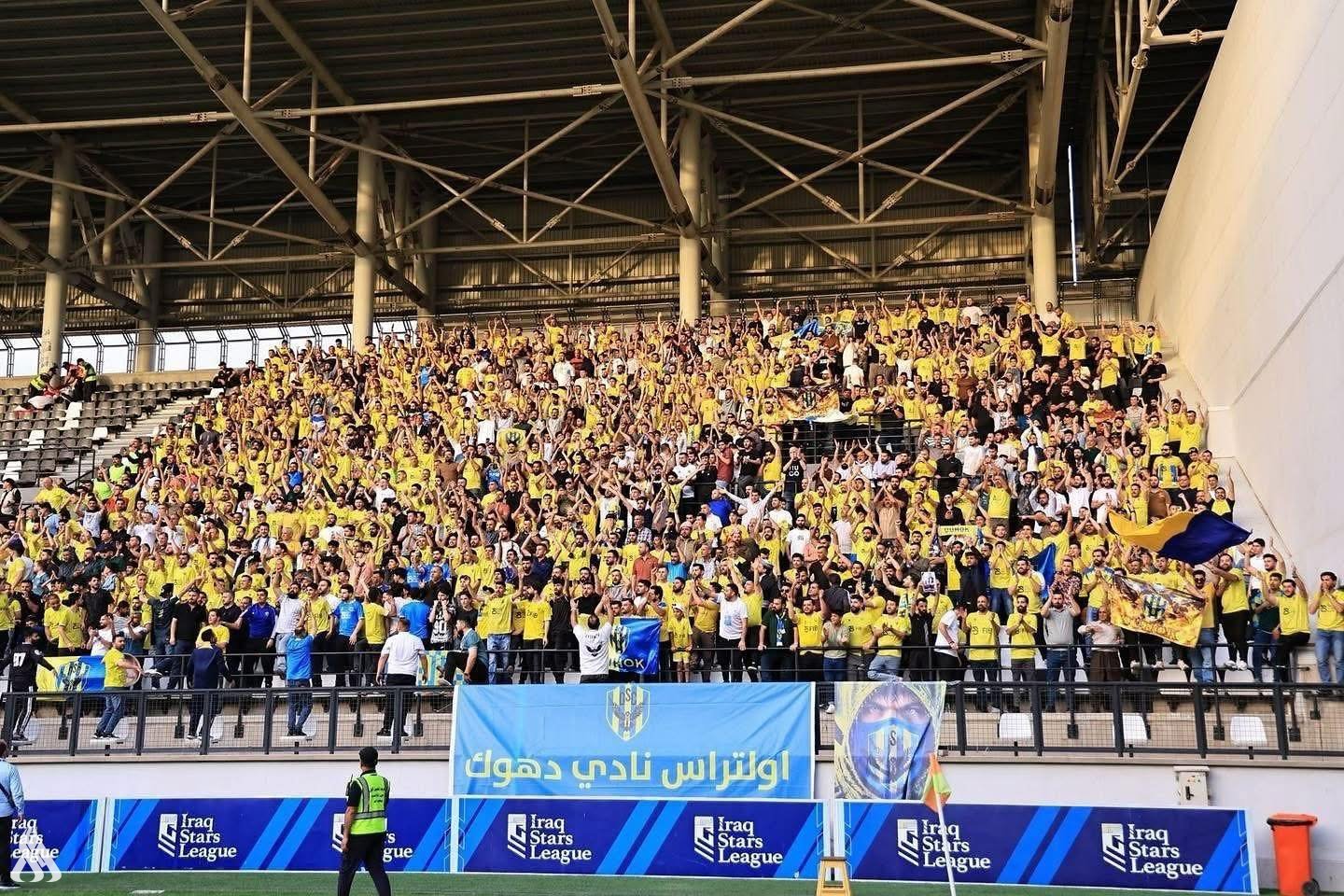
Al-Kadhmi retrieves thousands of artifacts from the British Museum

- 3-11-2020, 10:28
London - INA - Burkan Al-Shukraji
The Secretary of the Middle East Department at the British Museum, St.John Sompson, confirmed that Prime Minister Mustafa Al-Kadhmi's visit to the museum is historic and that thousands of artifacts were recovered.
Sompson said in an interview with the Iraqi News Agency (INA), today, Tuesday, that "Al-Kadhmi's visit represents a historic moment for the British Museum and the whole of London, and the museum received a high-level visit from Iraq," noting that "Al-Kazdhmi's visit included the signing of an agreement to recover 5,000 artifacts and return them to Iraq".
He added that "in the presence of the Iraqi prime minister, an agreement was signed to return a Sumerian painting to its motherland, which had been smuggled from somewhere, perhaps from Nasiriyah in 2003, and that the museum has an agreement with the Ministry of Culture to display this painting in the British Museum for a few months until the eighth of Next December, and the period may be extended, so that people can see it and see the friendship between the two countries, "indicating that" this painting was stolen from Iraq and was smuggled illegally, and after it was identified, the British authorities were informed of that. "
Study the panels
Sompson stated, "In addition to the Sumerian painting, there is another group of tablets from the excavations of the city of Ur extracted in the years 1924 and 1934 according to an agreement with the Iraqi Museum, and all the panels come to England or America for preservation, study, and display, and for many years, these tablets are returned to Baghdad," And the 5000 pieces that were agreed to return are the last group, and the most difficult in terms of translation and study, and it is from Sumerian literature, "explaining that" one of the things that some overlook in this field is that the Babylonian and Arabic languages are very close, and studying them may crystallize a new vision from Even if they were published before, discovering and understanding these panels is a continuous process that can be developed for the new generation, and work on these panels is still ongoing and will be photographed again and wrapped with the help of the Iraqi embassy in London and will be returned next year.
Missing pieces
"There are some Iraqi artifacts that are still missing from the Iraqi Museum and Mosul because of ISIS terrorist gangs until now, and the British Museum is concerned about that," Sombson said, noting that "the British side is always looking for other artifacts, and when they get them, Iraq will be contacted directly." To investigate the truth of its source, and if it was not from the Iraqi Museum, then that means that it was taken and smuggled from an archaeological place. "
Regarding the antiquities and archaeological sites that were destroyed and stolen by the terrorist gangs, he continued that "ISIS gangs not only targeted Iraq, but rather they targeted humanity after they destroyed and plundered the archaeological, cultural and religious heritage, and this behavior stems from deliberate brutal behavior," affirming that "defeat ISIS sends a strong message of the need to preserve the culture, the symbols of nations and history, and when they try to destroy them, they show their importance, and the role of the British Museum is to work together as one family in Mosul, Baghdad and all over the world to preserve the heritage.
Support Iraq
The Secretary of the Middle East Department at the British Museum pointed out that "recent years have witnessed the British government funding in regard to preserving Iraqi antiquities, and there was an agreement with the Iraqi side to bring some specialists in this field to London for training, and 50 specialists from all Iraqi provinces were trained," In addition, the British excavation missions visit Iraq twice a year to work together on excavations in the north and south, and a great success has been achieved, and work is continuing to develop other similar plans in the future.
He pointed out that "he will visit Iraq early next year and that the British Museum has three exploration projects in Iraq, one of which is near Nasiriyah and will last for three months."
He explained that "the administration of the Iraqi museum is working hard in storage and research, and this is the right time to return the artifacts to their home country, Iraq."
Duhok of Iraq and Qadsia of Kuwait match kicks off
- Sport
- 25/04/15
Barcelona steals exciting win from Celta Vigo, La Liga
- Sport
- 25/04/19












